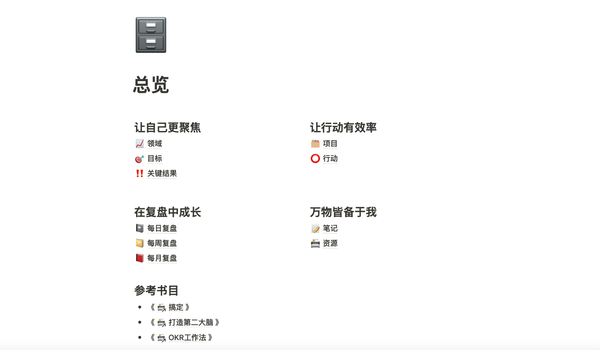Paul Graham谈初心的重要性
Paul Graham在其个人网站最近发布了名为《How to do great work》的文章,给仍然雄心勃勃的年轻人提了一些建议,适合每位对自己仍有期望的朋友反复阅读。下面是本文的第二部分摘录:
Let’s talk a little more about the complicated business of figuring out what to work on. The main reason it’s hard is that you can’t tell what most kinds of work are like except by doing them. Which means the four steps overlap: you may have to work at something for years before you know how much you like it or how good you are at it. And in the meantime you’re not doing, and thus not learning about, most other kinds of work. So in the worst case you choose late based on very incomplete information.
The nature of ambition exacerbates this problem. Ambition comes in two forms, one that precedes interest in the subject and one that grows out of it. Most people who do great work have a mix, and the more you have of the former, the harder it will be to decide what to do.
The educational systems in most countries pretend it’s easy. They expect you to commit to a field long before you could know what it’s really like. And as a result an ambitious person on an optimal trajectory will often read to the system as an instance of breakage.
It would be better if they at least admitted it — if they admitted that the system not only can’t do much to help you figure out what to work on, but is designed on the assumption that you’ll somehow magically guess as a teenager. They don’t tell you, but I will: when it comes to figuring out what to work on, you’re on your own. Some people get lucky and do guess correctly, but the rest will find themselves scrambling diagonally across tracks laid down on the assumption that everyone does.
What should you do if you’re young and ambitious but don’t know what to work on? What you should not do is drift along passively, assuming the problem will solve itself. You need to take action. But there is no systematic procedure you can follow. When you read biographies of people who’ve done great work, it’s remarkable how much luck is involved. They discover what to work on as a result of a chance meeting, or by reading a book they happen to pick up. So you need to make yourself a big target for luck, and the way to do that is to be curious. Try lots of things, meet lots of people, read lots of books, ask lots of questions.
When in doubt, optimize for interestingness. Fields change as you learn more about them. What mathematicians do, for example, is very different from what you do in high school math classes. So you need to give different types of work a chance to show you what they’re like. But a field should become _increasingly_interesting as you learn more about it. If it doesn’t, it’s probably not for you.
Don’t worry if you find you’re interested in different things than other people. The stranger your tastes in interestingness, the better. Strange tastes are often strong ones, and a strong taste for work means you’ll be productive. And you’re more likely to find new things if you’re looking where few have looked before.
One sign that you’re suited for some kind of work is when you like even the parts that other people find tedious or frightening.
But fields aren’t people; you don’t owe them any loyalty. If in the course of working on one thing you discover another that’s more exciting, don’t be afraid to switch.
If you’re making something for people, make sure it’s something they actually want. The best way to do this is to make something you yourself want. Write the story you want to read; build the tool you want to use. Since your friends probably have similar interests, this will also get you your initial audience.
This should follow from the excitingness rule. Obviously the most exciting story to write will be the one you want to read. The reason I mention this case explicitly is that so many people get it wrong. Instead of making what they want, they try to make what some imaginary, more sophisticated audience wants. And once you go down that route, you’re lost.
There are a lot of forces that will lead you astray when you’re trying to figure out what to work on. Pretentiousness, fashion, fear, money, politics, other people’s wishes, eminent frauds. But if you stick to what you find genuinely interesting, you’ll be proof against all of them. If you’re interested, you’re not astray.
弄清楚应该从事什么工作,这是一件非常复杂的事情。主要的困难在于,大多数类型的工作,如果不去长期实践,你无法确定它们到底是什么样子。这意味着下列四个步骤会互相重叠:你可能需要在一项工作上努力多年,才能确定自己是否喜欢它,或者自己在它上面是否称手。与此同时,你无法去尝试和了解大多数其他类型的工作。所以在最坏的情况下,你会在信息极不完整的情况下,很晚才做出职业选择。
野心的本质会加剧这个问题。野心有两种形式,一种是对事业的兴趣先于野心,另一种则是从事业中培养出来的。大多数做出伟大工作的人都具有这两种野心的结合,而前者越多,你就越难确定自己要从事什么工作。
大多数国家的教育体系假装这很容易。它们期待你在远早于了解一个领域的真实情况之前,就对其做出承诺。因此,一个处在最佳发展轨道上的有野心的人,在这样的体系里常常会被视为“问题”。
这些体系若能至少承认这一点就好了——承认它们不仅无法帮助你找到适合的工作,而且本身就是基于一个假设,即你能在十几岁时就神奇般地猜对该做什么。它们不会告诉你,但我会:在找出适合自己的工作这件事上,你只能依靠自己。有些人确实很幸运地猜对了,但其他人会发现自己正横跨轨道奔波,而这些轨道本身就是基于“每个人都能猜对”的假设铺设的。
如果你还年轻但是有野心,却不知道应该从事什么工作,你该怎么办?你绝不能随波逐流,坐等问题自行解决。你必须采取行动。但是没有任何系统化的程序可依循。当你阅读做出伟大工作的人的传记时,会发现运气在其中起了很大的作用。他们是通过偶然的邂逅或碰巧读到的一本书发现了自己的工作方向。所以你需要让自己成为运气的大目标,方法就是保持好奇心。尝试各种各样的事物,接触各种各样的人,阅读各种各样的书籍,提出各种各样的问题。
当感到迷茫时,优先考虑有趣性。随着你对一个领域的了解加深,它会发生改变。比如,数学家的工作和你在高中数学课上的内容很不一样。所以你需要给不同类型的工作一个展现自身的机会。一个领域对你的趣味性应该会随着你的理解加深而增长。如果不是这样,它可能就不太适合你。
不要担心自己的兴趣与别人不同。你的兴趣越特别,往往意味着越强烈。对工作的强烈兴趣意味着你的效率会更高。如果你的视线聚焦在很少人关注的地方,你也更可能有所创新。
你适合某种工作的一个标志是,即使是其他人觉得乏味或可怕的部分,你也能从中获得乐趣。
但是领域不是人,你不欠它任何忠诚。如果在研究一件事时发现了更让你兴奋的事情,不要害怕转向。
如果你在为人们制造东西,一定要确保它是他们真正需要的。最佳方式是制造你自己想要的东西。写下你自己想读的故事;建造你自己想用的工具。由于你的朋友可能有类似兴趣,这也能吸引初期观众。
这应该从“有趣性”这一原则推导出来。显然,最令人振奋的故事就是你自己最想读的。我特意提到这个例子是因为,太多人在这点上理解错误了。他们不是在创造自己想要的,而是在迎合某个想象出来的、更成熟的观众。一旦朝这个方向发展,你就迷失了方向。
当你在尝试找出适合自己的工作时,会有许多力量将你引向歧途。虚伪、时尚、恐惧、金钱、政治、他人的期许、骗子的蛊惑。但是如果你坚持真正感兴趣的事物,你将不会迷失。如果你感兴趣,那你就没有错。


